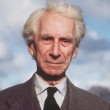How Do You Know You’re Not in the Matrix?
by Karlo Broussard
Filed under Man

At the heart of the philosophy of Aristotle and St. Thomas Aquinas is the idea that we come into contact with reality through the senses. But what if our senses are not a reliable source? Perhaps our senses are deceiving us, and everything we perceive isn’t real but is merely an illusion like in the movie The Matrix. Descartes This skepticism of sense knowledge was part of René Descartes’s methodic doubt, which many radical skeptics have adopted. Descartes argued: Whatever I have... Read More
Reason’s Bunker: The One-Sidedness of the Modern Mind
by Martin Dober
Filed under Man

St. Justin Martyr, a second century philosopher and Christian apologist, once reflected that Platonic philosophy added “wings” to his mind.1 He was referring to the way that Plato’s theory of ideas freed his reason, allowing his thoughts to rest not just upon the sensible things of this earth, but rather permitting him to contemplate the unseen yet essential realities that undergird and give meaning to all of existence. Justin is a witness to the way that truth can lift our minds... Read More
Marin Mersenne: A Priest at the Heart of the Scientific Revolution
by Andrew Kassebaum
Filed under Christianity and Science

In late 1644, the Minim friar Marin Mersenne (1588-1648) travelled to Florence and assisted Evangelista Torricelli (1608-1647) in repeating his famous barometric experiment. When Mersenne returned to France, he shared Torricelli’s discovery with his network of correspondents, “giving rise to flourishing experimental and theoretical activities,”1 including the famous work on the weight of air conducted by Blaise Pascal (1623-1662). This is one of many contributions Mersenne would... Read More
Exorcising Epistemology
by Matthew Becklo
Filed under Belief

Two fantastic articles at Strange Notions in recent weeks have turned from the question of God to the question of the human self. In “Atheism and the Personal Pronoun,” Patrick Schultz explores what he calls a “doorstop” argument for the soul: under materialist atheism, we are mindless machines, but given that every one of us is inescapably a subjective “I,” materialist atheism looks false. In “Exorcizing the Ghost from the Machine,” Matthew Newland counters this argument... Read More
What is a Soul?
by Dr. Edward Feser
Filed under Anthropology

What is a soul? Or to be more precise, what is a human soul? Or to be even more precise, what is a human being? For that is really the key question; and I sometimes think that the biggest obstacle to understanding what the soul is is the word “soul.” People too readily read into it various erroneous notions (erroneous from an Aristotelian-Thomistic point of view, anyway)—ghosts, ectoplasm, or Cartesian immaterial substances. Even the Aristotelian characterization of the... Read More
If Everything Requires a Cause, What Caused God?
by Dr. Edward Feser
Filed under The Existence of God

W. Norris Clarke’s article, “A Curious Blind Spot in the Anglo-American Tradition of Antitheistic Argument,” first appeared in The Monist in 1970. It was reprinted in his anthology titled The Creative Retrieval of St. Thomas Aquinas: Essays in Thomistic Philosophy, New and Old, which was published posthumously in 2009. I recently read the essay, and I did so with embarrassment and gratification. Embarrassment because I found that something I’ve been harping on for a few... Read More
Tolerance, Choice, Argument, and Religion
by Bishop Robert Barron
Filed under Religion

Pew Forum recently released the results of their study on religion in America. In accord with many surveys over the past fifty years, this poll showed that the vast majority (over 90%) of Americans believe in God but that an increasing number prefer their own spiritual experience to the dogmas and doctrines of traditional Christianity. Also, there is, among Americans, a general acceptance of positive, life-affirming beliefs but a deep suspicion of negative ideas such as divine judgment... Read More






